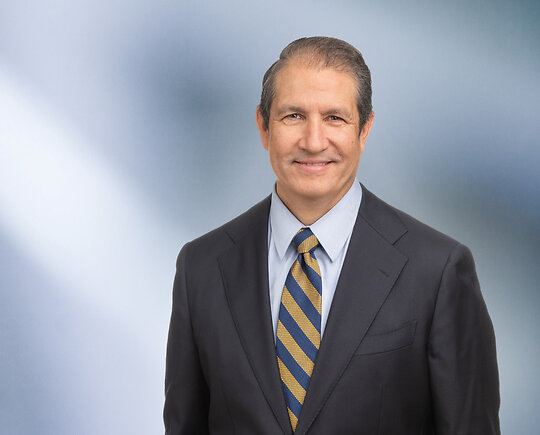
Michigan Labor & Employment Law Blog
 In a significant ruling that has major implications for employers and employees, the U.S. Supreme Court, in the case of Bostock v. Clayton County, Georgia, held that the federal prohibition on discrimination “because of sex” found in Title VII of the Civil Rights Act of 1964 prohibits discrimination based on sexual orientation and gender identity.
In a significant ruling that has major implications for employers and employees, the U.S. Supreme Court, in the case of Bostock v. Clayton County, Georgia, held that the federal prohibition on discrimination “because of sex” found in Title VII of the Civil Rights Act of 1964 prohibits discrimination based on sexual orientation and gender identity.
The Court’s decision resolved a split among three lower federal courts cases and consolidated those cases for one decision. In all three lower court cases, the employees were fired after revealing they were homosexual or transgender. The employers did not dispute that they were fired for that reason. Each employee filed a lawsuit alleging that their employer had discriminated against them because of sex in violation of Title VII. One lower court held that the employer could lawfully discriminate because of sexual orientation, while a different lower court held that such discrimination was unlawful. The third lower court held that discrimination based upon an employee’s transgender status was unlawful.
The U.S. Supreme Court resolved the conflicting lower court decisions when it definitively ruled that Title VII’s protection against discrimination extends to sexual orientation and gender identity. The Court reasoned that homosexuality and transgender status are inextricably linked to sex and that discrimination on such bases is unlawful, and, therefore, “it is impossible to discriminate against a person for being homosexual or transgender without discriminating against that individual based on sex.” The Court further explained that “the plaintiff’s sex need not be the sole or primary cause of the employer’s adverse action” for Title VII to apply.
The dissenting opinion, written by Justice Samuel Alito, argues in favor of a strict constructionist interpretation of Title VII, and accuses the majority of ignoring the statute’s plain language and Congress’ legislative intent, stating that: "There is only one word for what the Court has done today: legislation. The document that the Court releases is in the form of a judicial opinion interpreting a statute, but that is deceptive."
One interesting caveat left open by the Court's decision is how employers may raise constitutional religious freedom under the First Amendment and a 1993 law, the Religious Freedom Restoration Act. Justice Gorsuch clarified that the employer in the case had raised religious issues initially on their appeal, but did not raise them in their appeal. However, the Court made it clear that it would view future claims of discrimination based on gay or transgender and whether the application of Title VII violated an employer’s religious convictions. Some may recall the notable case of Burwell v. Hobby Lobby where Hobby Lobby successfully argued the Affordable Care Act's ("ACA") preventive health care services such as contraception violated that companies were "persons" and their religious objects to cover contraception exempted them from that ACA requirement. Similarly, the Supreme Court notably held in favor of a baker in Colorado in 2018, when they refused to make a wedding cake for a same-sex marriage based on a religious conviction. Ultimately, the Court has left open what will clearly be future litigation on this issue.
Case Implications
While more than 20 states have laws in place that prohibit employment discrimination based on sexual orientation and gender identity, many do not, and now the prohibition on such discrimination is the law of the land. Individuals in all states and territories are now protected against employment discrimination that is based on sexual orientation and/or gender identity, and may now pursue relief with the Equal Employment Opportunity Commission (EEOC) and seek redress in the federal courts.
For employers, the decision removes all doubt and confusion as to an issue that was subject to different interpretations in various legal jurisdictions, states, and locales. Employers should carefully review employment handbooks in light of the Court’s decision. While many employment handbooks likely already address prohibitions on discrimination because of “sex,” employers may consider adding specific language regarding “sexual orientation” and “gender identity.” Additional training for employees and supervisors may also be necessary to inform everyone in an organization about the recent changes to the interpretation of Title VII.
Foster Swift Labor & Employment attorneys can assist with any questions related to the Court’s ruling, as well as advise clients regarding changes to employment handbooks and policies. For more information, please contact:
- Karl Butterer (Grand Rapids)...616.726.2212...kbutterer@fosterswift.com
- Mike Blum (Southfield)...248.785.4722...mblum@fosterswift.com
- Cliff Hammond (Southfield/Lansing)...517.371.8135...chammond@fosterswift.com
- Shareholder
Karl has over 25 years of experience representing employers both in and out of the courtroom. Karl regularly advises governmental entities, manufacturers, small businesses, health care providers, and large corporations. He ...

